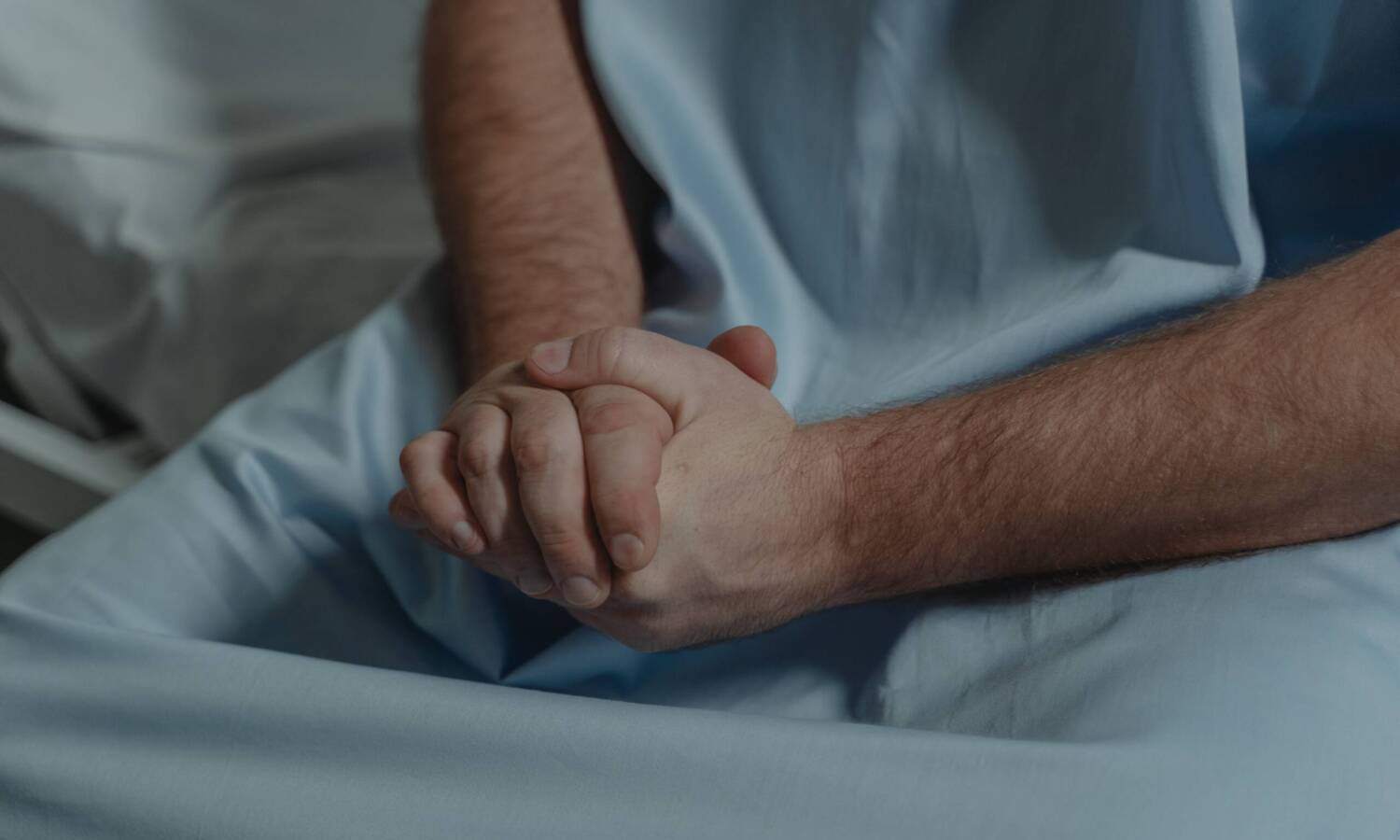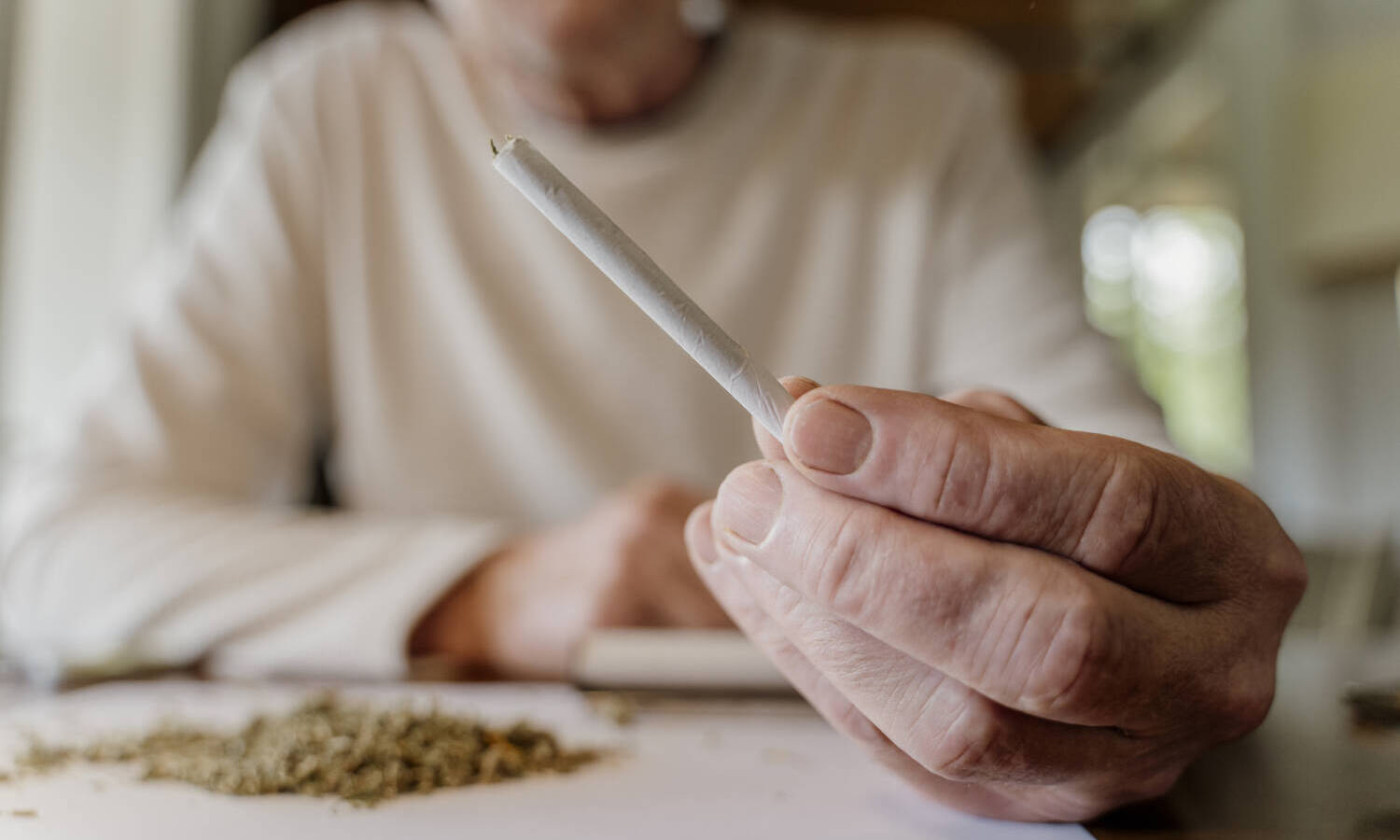Business
CBD No Better Than Placebo For Cancer Symptoms: Are We Back At It Again?

Can you really conclude from one study that CBD isolate is not effective in relieving “a myriad of symptoms” in advanced cancer?
A study that was published last month in the Journal of Clinical Oncology found that cannabidiol (CBD) is no better than placebo in relieving symptoms of end stage cancer. This was a double blind and placebo-controlled study that was conducted by Mater Research in collaboration with the University of Queensland.
Before we even dive into the details of the study, one generally wonders how a single compound in cannabis offered at the same dosage is supposed to relieve a myriad of symptoms. That more or less sounds like machine gun medicine, something that the medical cannabis community has often picked issue with.

Details of the Study
The study involved 144 participants, all who were receiving palliative treatment for advanced cancer. The participants received either pure CBD or placebo for a duration of 28 days. The researchers investigated the effects of CBD in relieving general distress, pain, anxiety, and depression. They also monitored adverse effects.
https://googleads.g.doubleclick.net/pagead/ads?client=ca-pub-4007899114954491&output=html&h=280&slotname=7947877161&adk=1136884943&adf=3886891445&pi=t.ma~as.7947877161&w=696&fwrn=4&fwrnh=100&lmt=1670695184&rafmt=1&format=696×280&url=https%3A%2F%2Fthefreshtoast.com%2Fcbd%2Fcbd-no-better-than-placebo-for-cancer-symptoms-are-we-back-at-it-again%2F&fwr=0&fwrattr=true&rpe=1&resp_fmts=3&wgl=1&adsid=ChAIgPnQnAYQtar7kbWB6uxZEj0AstyMTY0FpYzHZgzY8dwV1HTmZzJtU0yk5eF0DqB5SsDZoFfp1Fh3QlHVZq0ANTXECbVXX0TxfJxALavL&uach=WyJXaW5kb3dzIiwiMTAuMC4wIiwieDg2IiwiIiwiMTA4LjAuNTM1OS45OSIsW10sZmFsc2UsbnVsbCwiNjQiLFtbIk5vdD9BX0JyYW5kIiwiOC4wLjAuMCJdLFsiQ2hyb21pdW0iLCIxMDguMC41MzU5Ljk5Il0sWyJHb29nbGUgQ2hyb21lIiwiMTA4LjAuNTM1OS45OSJdXSxmYWxzZV0.&dt=1670695162229&bpp=28&bdt=1464&idt=568&shv=r20221206&mjsv=m202211300101&ptt=9&saldr=aa&abxe=1&cookie=ID%3Ddffa619281ab3ea4-223edf950bd80014%3AT%3D1667444252%3ART%3D1667444252%3AS%3DALNI_MYrUj-fjMeBiFd9cwKZEnN0E4jQIA&gpic=UID%3D0000089b1050f759%3AT%3D1667444252%3ART%3D1670693621%3AS%3DALNI_Ma20b1YVis8sAv15JCnZHFGxc0UEw&prev_fmts=0x0%2C696x280&nras=1&correlator=2934467881059&frm=20&pv=1&ga_vid=1999515006.1667444247&ga_sid=1670695162&ga_hid=406072514&ga_fc=1&u_tz=330&u_his=1&u_h=686&u_w=1220&u_ah=648&u_aw=1220&u_cd=24&u_sd=1.575&dmc=8&adx=68&ady=2701&biw=1204&bih=491&scr_x=0&scr_y=743&eid=44759876%2C44759927%2C44759842%2C31071199%2C44779794&oid=2&psts=AMjMPc0iMMx3pKp17WoYoeN6vP3viLcx005kMBUhdJv1d5Hf6yoLvPJCQD71sL1CM_o2s2E99nmb85f1dhQfVQ&pvsid=847542331889717&tmod=35216950&uas=3&nvt=1&ref=https%3A%2F%2Fthefreshtoast.com%2F&eae=0&fc=1920&brdim=0%2C0%2C0%2C0%2C1220%2C0%2C1220%2C648%2C1220%2C491&vis=1&rsz=%7C%7Coebr%7C&abl=CS&pfx=0&fu=128&bc=31&ifi=3&uci=a!3&btvi=2&fsb=1&xpc=5ZfK0ZCTv9&p=https%3A//thefreshtoast.com&dtd=21847
All the parameters were observed and recorded at 14 days and at 28 days. The results showed no significant difference in symptom improvement in patients who received CBD compared to those who received placebo. Also, adverse effects reported were not related to either interventions (CBD or placebo). A conclusion was made that “CBD may not add value in reducing symptoms for patients with advanced cancer beyond standard palliative care.” And it seemed that the researchers were not surprised by this finding.
“The best way to describe the uptake of medicinal cannabis following its legalization was as a social phenomenon — everyone wanted it, but there was little evidence to guide its usage,” said lead researcher Professor Hardy.
Issue 1: Dosage of CBD Offered for Palliative Care
The participants were offered titrations of CBD oil or placebo from 50mg/day to 600mg/day. In comparison, CBD oil for epilepsy (Epidiolex) is offered at a starting dose of 5 mg/kg/day (350mg for a 70kg man) to 20 mg/kg/day (1,400mg for a 70kg man). This is not to say that the CBD dose offered was too low. A different study showed that a dose of 300mg/day of oral CBD was effective in treating chemotherapy-induced peripheral neuropathy.
However, one wonders whether higher doses of CBD could have worked better for some symptoms. Would it not have been more effective to assess one condition at a time and rule out the potential of different doses of CBD isolate in offering relief? Or can you conclude from one study that CBD isolate is not effective in relieving “a myriad of symptoms” in advanced cancer?
Here’s the thing. Surprisingly, 36% of the study participants opted to purchase the CBD treatment in spite of being aware of the results and even being convinced that they were part of the active (CBD) arm of the study. There are two possible explanations for this: general optimism in spite of lack of evidence (as cited by the researchers) or the participants actually experienced an improved sense of wellbeing.
Dr. Grinspoon, a well respected thought leader in medical cannabis, has previously reported that “people almost exclusively talk about their quality of life getting better when using cannabis as compared to opiates.”
But dosage is the smaller issue here.

Issue 2: CBD Isolate Versus Full Spectrum CBD
Cannabis is made up of hundreds of bioactive molecules, with CBD and THC being the most popular. These compounds act together synergistically to enhance the therapeutic benefits in what has been described as the entourage mechanism. For example, when it comes to managing pain or nausea and vomiting, studies have shown that a combination of THC and CBD is more effective than an isolate of each compound on its own.
While it is believed that THC has stronger analgesic properties, CBD helps to offset some of the negative effects of THC. In addition, terpenes also play a key role in unleashing the true potential of medical cannabis. Therefore, when looking at a broad range of cancer symptoms, it would be unfair to overlook the benefits that are offered through the entourage mechanism.
While CBD as an isolate may offer great relief for epilepsy, it may require additional compounds or substitutes to address other cancer symptoms.
Is CBD Any Good For Cancer?
That’s a hard question to answer from any one study. Some studies have demonstrated anti-tumor properties of CBD in some cancers but not others. When it comes to symptoms of advanced cancer, this is best looked at on a case-by-case basis.
While it may be true that there might be an “over-optimism” about medical cannabis, there also could be some “over-pessimism” from a sector of the medical community. And as the saying goes, if all you have is a hammer, everything you see will look like a nail.
Business
New Mexico cannabis operator fined, loses license for alleged BioTrack fraud

New Mexico regulators fined a cannabis operator nearly $300,000 and revoked its license after the company allegedly created fake reports in the state’s traceability software.
The New Mexico Cannabis Control Division (CCD) accused marijuana manufacturer and retailer Golden Roots of 11 violations, according to Albuquerque Business First.
Golden Roots operates the The Cannabis Revolution Dispensary.
The majority of the violations are related to the Albuquerque company’s improper use of BioTrack, which has been New Mexico’s track-and-trace vendor since 2015.
The CCD alleges Golden Roots reported marijuana production only two months after it had received its vertically integrated license, according to Albuquerque Business First.
Because cannabis takes longer than two months to be cultivated, the CCD was suspicious of the report.
After inspecting the company’s premises, the CCD alleged Golden Roots reported cultivation, transportation and sales in BioTrack but wasn’t able to provide officers who inspected the site evidence that the operator was cultivating cannabis.
In April, the CCD revoked Golden Roots’ license and issued a $10,000 fine, according to the news outlet.
The company requested a hearing, which the regulator scheduled for Sept. 1.
At the hearing, the CCD testified that the company’s dried-cannabis weights in BioTrack were suspicious because they didn’t seem to accurately reflect how much weight marijuana loses as it dries.
Company employees also poorly accounted for why they were making adjustments in the system of up to 24 pounds of cannabis, making comments such as “bad” or “mistake” in the software, Albuquerque Business First reported.
Golden Roots was fined $298,972.05 – the amount regulators allege the company made selling products that weren’t properly accounted for in BioTrack.
The CCD has been cracking down on cannabis operators accused of selling products procured from out-of-state or not grown legally:
- Regulators alleged in August that Albuquerque dispensary Sawmill Sweet Leaf sold out-of-state products and didn’t have a license for extraction.
- Paradise Exotics Distro lost its license in July after regulators alleged the company sold products made in California.
Golden Roots was the first alleged rulebreaker in New Mexico to be asked to pay a large fine.
Source: https://mjbizdaily.com/new-mexico-cannabis-operator-fined-loses-license-for-alleged-biotrack-fraud/
Business
Marijuana companies suing US attorney general in federal prohibition challenge

Four marijuana companies, including a multistate operator, have filed a lawsuit against U.S. Attorney General Merrick Garland in which they allege the federal MJ prohibition under the Controlled Substances Act is no longer constitutional.
According to the complaint, filed Thursday in U.S. District Court in Massachusetts, retailer Canna Provisions, Treevit delivery service CEO Gyasi Sellers, cultivator Wiseacre Farm and MSO Verano Holdings Corp. are all harmed by “the federal government’s unconstitutional ban on cultivating, manufacturing, distributing, or possessing intrastate marijuana.”
Verano is headquartered in Chicago but has operations in Massachusetts; the other three operators are based in Massachusetts.
The lawsuit seeks a ruling that the “Controlled Substances Act is unconstitutional as applied to the intrastate cultivation, manufacture, possession, and distribution of marijuana pursuant to state law.”
The companies want the case to go before the U.S. Supreme Court.
They hired prominent law firm Boies Schiller Flexner to represent them.
The New York-based firm’s principal is David Boies, whose former clients include Microsoft, former presidential candidate Al Gore and Elizabeth Holmes’ disgraced startup Theranos.
Similar challenges to the federal Controlled Substances Act (CSA) have failed.
One such challenge led to a landmark Supreme Court decision in 2005.
In Gonzalez vs. Raich, the highest court in the United States ruled in a 6-3 decision that the commerce clause of the U.S. Constitution gave Congress the power to outlaw marijuana federally, even though state laws allow the cultivation and sale of cannabis.
In the 18 years since that ruling, 23 states and the District of Columbia have legalized adult-use marijuana and the federal government has allowed a multibillion-dollar cannabis industry to thrive.
Since both Congress and the U.S. Department of Justice, currently headed by Garland, have declined to intervene in state-licensed marijuana markets, the key facts that led to the Supreme Court’s 2005 ruling “no longer apply,” Boies said in a statement Thursday.
“The Supreme Court has since made clear that the federal government lacks the authority to regulate purely intrastate commerce,” Boies said.
“Moreover, the facts on which those precedents are based are no longer true.”
Verano President Darren Weiss said in a statement the company is “prepared to bring this case all the way to the Supreme Court in order to align federal law with how Congress has acted for years.”
While the Biden administration’s push to reschedule marijuana would help solve marijuana operators’ federal tax woes, neither rescheduling nor modest Congressional reforms such as the SAFER Banking Act “solve the fundamental issue,” Weiss added.
“The application of the CSA to lawful state-run cannabis business is an unconstitutional overreach on state sovereignty that has led to decades of harm, failed businesses, lost jobs, and unsafe working conditions.”
Business
Alabama to make another attempt Dec. 1 to award medical cannabis licenses

Alabama regulators are targeting Dec. 1 to award the first batch of medical cannabis business licenses after the agency’s first two attempts were scrapped because of scoring errors and litigation.
The first licenses will be awarded to individual cultivators, delivery providers, processors, dispensaries and state testing labs, according to the Alabama Medical Cannabis Commission (AMCC).
Then, on Dec. 12, the AMCC will award licenses for vertically integrated operations, a designation set primarily for multistate operators.
Licenses are expected to be handed out 28 days after they have been awarded, so MMJ production could begin in early January, according to the Alabama Daily News.
That means MMJ products could be available for patients around early March, an AMCC spokesperson told the media outlet.
Regulators initially awarded 21 business licenses in June, only to void them after applicants alleged inconsistencies with how the applications were scored.
Then, in August, the state awarded 24 different licenses – 19 went to June recipients – only to reverse themselves again and scratch those licenses after spurned applicants filed lawsuits.
A state judge dismissed a lawsuit filed by Chicago-based MSO Verano Holdings Corp., but another lawsuit is pending.
Source: https://mjbizdaily.com/alabama-plans-to-award-medical-cannabis-licenses-dec-1/
-

 Business2 years ago
Business2 years agoPot Odor Does Not Justify Probable Cause for Vehicle Searches, Minnesota Court Affirms
-

 Business2 years ago
Business2 years agoNew Mexico cannabis operator fined, loses license for alleged BioTrack fraud
-

 Business2 years ago
Business2 years agoAlabama to make another attempt Dec. 1 to award medical cannabis licenses
-

 Business2 years ago
Business2 years agoWashington State Pays Out $9.4 Million in Refunds Relating to Drug Convictions
-

 Business2 years ago
Business2 years agoMarijuana companies suing US attorney general in federal prohibition challenge
-

 Business2 years ago
Business2 years agoLegal Marijuana Handed A Nothing Burger From NY State
-

 Business2 years ago
Business2 years agoCan Cannabis Help Seasonal Depression
-

 Blogs2 years ago
Blogs2 years agoCannabis Art Is Flourishing On Etsy









